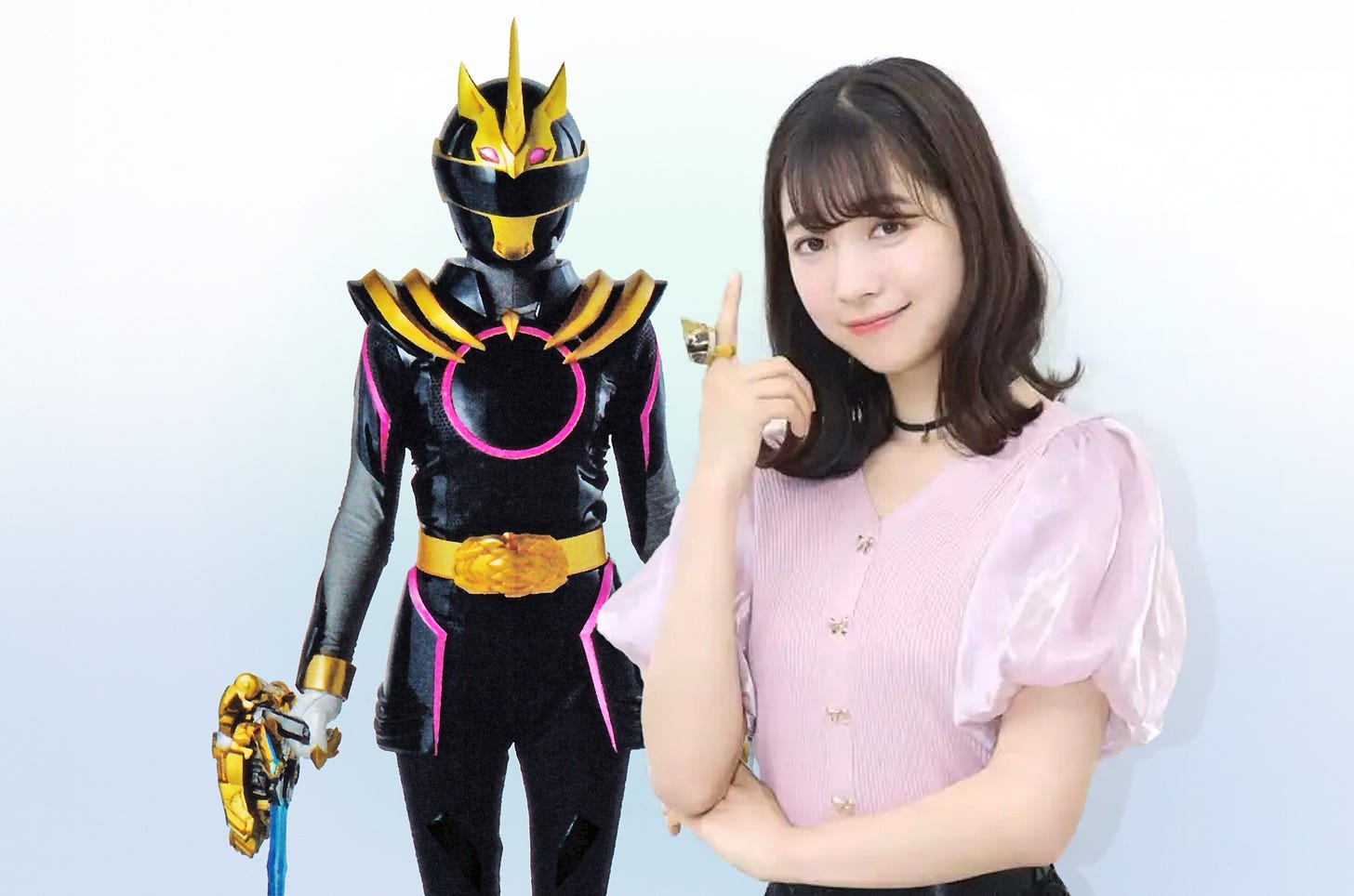The Japanese idol world has been hit with multiple scandals in the past week, and depending on who you ask, these incidents range from serious infractions to absurd overreactions. But before we dive in, let’s clarify what actually counts as a “scandal” in this industry.
A scandal in the Japanese idol world ranges from social rules being broken (like openly promoting oneself with a romantic partner, which breaks the illusion of availability) to actual legal violations. As I wrote in a previous post about my experiences working in the J-pop industry, most of the rules laid out for idols aren’t 100% real. In fact, what separates an “idol” from any other type of “talent” in Japan isn’t their modality of entertainment but rather arbitrary social rules that their fans are well aware of. Everyone knows the game being played. The question is what happens when someone breaks the unspoken contract.
The scandal getting the most press with Western audiences now is the firing of young gravure idol and actress Maya Imamori for the grand crime of… underage drinking.
Young Maya, just 19, broke the law by not being 20, which is the age of maturity in Japan and the legal drinking age. The actress made her grand debut earlier this year as the first Black female ranger in Super Sentai (the show on which the American series Power Rangers is based). When the news broke, her agency swiftly terminated her contract, erased her scenes from the series, and removed her name from all credits and promotional materials. Toei publicly apologized to fans and sponsors for the trouble caused.
When Maya was 17, she was legally able to be a gravure idol, an industry in Japan that features young women in bikinis and sensual posing. Let that sink in for a moment. Sexual imagery? Perfectly fine for a 17-year-old. Having a beer at 19? Career over.
Another, smaller idol scandal also occurred. This time, 17-year-old Fujisaki Azu posted an innocent photo of herself at the movie theater with a snack in tow. It didn’t take Japanese internet sleuths long to discover a man’s reflection in the plastic cup she was holding. As this post gained traction online, Azu’s management caved and posted an apology. The high schooler was sacked from her role as an idol and released a long letter of atonement for her “careless actions” of having a boyfriend.
The idol community isn’t new to such scandals. While management companies consider scandals to be financial burdens for them, it’s really a feature of the industry, not a bug. At any time, your favorite idol could be taken down by something as trivial as being photographed with the wrong person or as serious as a legal violation. The constant threat of exposure creates a perpetual state of tension that keeps fans invested and idols compliant.
What Westerners Don’t GET
Due to the Maya Imamori scandal going viral, Western Super Sentai fans have provided a few theories as to why they think she has been punished so severely. Many of them have to do with identity. Imamori is half Filipino, and some have suggested that this is a racist representation. Others have suggested that this was just plain old misogyny.
People decry this as examples of sexism, and this is undeniably the truth in some instances. Take the case of Becky (the Japanese TV personality, not to be confused with British YouTuber Beckii Cruel), who in 2016 had an affair with a married guitarist and saw her entire career demolished while the man continued performing.
Or consider Maho Yamaguchi, the NGT48 member who was assaulted by two fans in 2018. When she spoke out about the attack and alleged that other members had leaked her personal information to her attackers, management forced her to apologize for “causing trouble.” She eventually left the group entirely after the company’s investigation cleared everyone involved and did nothing to address her safety concerns.
But many male Japanese celebs have lost their careers for drug use, too. Musician and actor Pierre Taki was arrested in 2019 for cocaine use and became essentially a non-person overnight. His music was pulled from stores and streaming services, his voice was removed from video games like Kingdom Hearts III and the Japanese dub of Frozen (he voiced Olaf), and his past work was wiped from airwaves and internet sites. This practice, known as “jishuku” or “self-restraint,” has been standard in Japanese entertainment for decades.
While the Japanese public tends to be unusually harsh towards women in similar social situations to men, there have been plenty of cases of Japanese male entertainers caught with drugs, having their entire careers cancelled. This isn’t purely about gender, though gender certainly amplifies the punishment in specific cases.
Idol Culture & The Economics of TRUST
Idols are so scandal-prone because the function of an idol operates as a high-trust figure within the Japanese media ecosystem. Idols, by and large, are salespeople whose relationships with fans are understood as parasocial relationships built on an “illusion of intimacy.” In Imamori’s case, she was a star for a children’s show and was expected to uphold certain high-trust standards in relation to this role.
Americans who bring up her gravure career don’t understand that sensuality in Japan isn’t perceived the same way that it is in America. There are politicians in the Japanese Diet who are former gravure models. This isn’t America, where the slightest sexual infraction is socially damning to a woman. Instead, it isn’t the fact that she drank alcohol that bothers people. It’s that she willingly broke a law and got caught doing it.
As for Fujisaki, who had a boyfriend, some of it is because she is a woman and serves as a pseudo-girlfriend for obsessive fans. But a lot of it is also because an element of trust is broken. The idol industry specifically incentivizes building relationships like this with fans, creating emotional and financial investments that fans perceive as reciprocal.
I have a friend who was a young Western woman who went mega viral and became an idol in Japan. I won’t say her name because I’m not certain if this story is public, but most people would know her. She told me that she had a super fan who invested in buying her gifts she hadn’t asked for from the time she was a young adolescent. After she stopped being an idol, she became a normal influencer and showed off her boyfriend (as women do). This Japanese fan wrote an angry letter to her father that included an invoice for all of the gifts she’d received over the time span. “I was intending for her to marry me. Now that will not be happening, you need to pay me restitution for the time and money I spent on her.”
Giving & receiving monetary gifts for atonement or a breach of a social duty is normal in Japan. When Becky’s affair was revealed, Japanese law actually allowed Kawatani’s wife to seek damages from Becky as the “instigator” of the affair, even though Kawatani himself was off the hook since his wife chose not to divorce him. But about the fan who demanded payment from my friend specifically: this guy was absolutely delusional.
Yet to him and the rest of the Japanese idol fans who have their “trust broken” by their idol, it makes perfect sense. The industry specifically incentivizes building relationships like this with fans. Is this unethical? Probably. But I’m not sure how much of this reaction is “Japanese culture” or “sexism” or “racism” versus just human nature when one’s expectations are breached.
Research on idol fan psychology demonstrates that fans’ identities become so tied to their favorite idol that disruptions to this parasocial relationship cause major psychological distress. These relationships are understood as parasocial in nature, creating “one-sided relationships that subsist on an illusion of intimacy,” where fans project onto idols and form emotional bonds that feel real despite the relationship being fundamentally transactional.
IS IT JUST MEMETIC OUTRAGE???
This is where specific quirks about Japanese culture come in. A lot of Japanese culture has some panic or hysteria around social morale and ostracism.
I have to wonder if much of the scandal in the idol industry is memetic outrage or something like the Streisand effect. If management companies just let’s say, ignored all of the fans’ outrage, how likely is it that it would pass over in a month or week? Would fans actually care in the long run? I think a lesson we’ve learned in the West from cancel culture is to just ignore mob tirades online because they eventually seem to pass over.
The Pierre Taki case provides an interesting counterpoint. Over 50,000 people signed an online petition calling for Sony Music to reverse its decision to pull Denki Groove’s music from stores and streaming. Public support remained surprisingly high, with many arguing the punishment was disproportionate to the crime. Yet the industry response remained unchanged, driven more by corporate liability concerns than public outcry.
Perhaps Japanese entertainment companies are locked into a pattern of overreaction, not because fans genuinely demand it, but because the system has created expectations that companies now feel compelled to meet. The cycle perpetuates itself: scandals lead to firing, which reinforces the idea that scandals must lead to firing, which ensures the next scandal will also lead to firing. Breaking this cycle would require management to simply... stop. To let the initial outrage dissipate without feeding it through dramatic gestures of punishment.
But that would require acknowledging something uncomfortable: that the entire idol system is built on a fantasy that everyone knows is fake, and perhaps it’s time to stop pretending the fantasy needs to be preserved at such devastating human cost.






There is an interesting parallel to another scandal from earlier this year that had new developments just the week before Maya Imamori's scandal. In June, then-17-year-old Saki Ishihara was sacked from her idol group after she was found to have engaged in underage drinking, same as Imamori. As of this month, Ishihara, now 18, has been reinstated by her talent agency (though not as part of her previous idol group). In announcing Ishihara's return, the agency wrote an appeal: "Failure is something anyone can experience. We sincerely request that you grant this 18-year-old youth an opportunity to regain trust and fulfill her dreams." https://official.01familia.jp/news/4037
I do think this is a thing in the US a bit as well with the Disney stars specifically. Drunk driving is a big career death in some cases (of course that’s very dangerous behavior so it’s not bad to take a stance I guess).
But yeah it’s way out of hand in Asia. I hate that they pull the older work of the artists in some cases! We should still be able to enjoy their music as usual. This is also why physical media is better than streaming in some cases.
I’m glad there has been a shift with some more modern thinking media not boycotting artists like Netflix. Sawajiri Erika was in Followers after her drugs scandal and T.O.P. caused both outrage and sensation by being in Squid Game. But those are artist who already had a bit of a wild party image before getting caught with illegal substances, things would be much more difficult for idols who have to keep up a proper image. I think even if mainstream media in Asia would become less proper, the innocent idol girl groups would still have to obey the same social rules anyway. Things like self production and focusing on less judgemental fans could help though, like how you said your friend became an influencer after being an idol and could show off having a boyfriend.
Anyway, I’m glad I’m not famous, way too much drama!